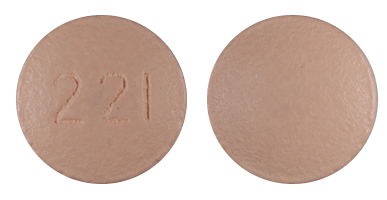Januvia and Janumet Side Effects
Common side effects of Type 2 diabetes drugs Januvia and Janumet include diarrhea, vomiting, upper respiratory infections and headaches. Rare reactions include hypersensitivity, pancreatitis, kidney failure, skin disorders and lactic acidosis.
Article Continues Below

Board-certified physicians medically review Drugwatch.com content to ensure its accuracy and quality.
Drugwatch.com partners with Physicians’ Review Network Inc. to enlist specialists. PRN is a nationally recognized leader in providing independent medical reviews.
Reviewer specialties include internal medicine, gastroenterology, oncology, orthopedic surgery and psychiatry.
Drugwatch.com has been empowering patients for more than a decade
Drugwatch.com has provided reliable, trusted information about medications, medical devices and general health since 2008. We’ve also connected thousands of people injured by drugs and medical devices with top-ranked national law firms to take action against negligent corporations.
Our team includes experienced medical writers, award-winning journalists, researchers and certified medical and legal experts. Drugwatch.com is HONCode (Health On the Net Foundation) certified. This means the high-quality information we provide comes from credible sources, such as peer-reviewed medical journals and expert interviews.
The information on Drugwatch.com has been medically and legally reviewed by more than 30 expert contributors, including doctors, pharmacists, lawyers, patient advocates and other health care professionals. Our writers are members of professional associations, including American Medical Writers Association, American Bar Association, The Alliance of Professional Health Advocates and International Society for Medical Publication Professionals.
About Drugwatch.com
- Assisting patients and their families since 2008.
- Helped more than 12,000 people find legal help.
- A+ rating from the Better Business Bureau.
- 5-star reviewed medical and legal information site.
Testimonials
"Drugwatch opened my eyes to the realities of big pharmacy. Having a family member with major depression and anxiety, I was looking for information on her medications. I found information that was very helpful, that her psychiatrist never told her."
- Common Side Effects
- Gastrointestinal symptoms (abdominal pain, diarrhea, nausea and vomiting), upper respiratory tract infections and headaches
- Serious Side Effects
- Acute kidney failure, liver disorders, lactic acidosis, pancreatitis, heart failure, vitamin B12 deficiency, arthralgia, skin disorders and allergic reactions
- Boxed Warning
- Janumet has a boxed warning for the risk of metformin-associated lactic acidosis. This can lead to serious health complications, including hypotension, hypothermia and death.
Most Recent Side Effects Information
As of September 2024, increased blood glucose, pancreatitis, pancreatic cancer and gastrointestinal disorders (vomiting, diarrhea and nausea) were the most commonly reported side effects of Januvia and Janumet to the FDA.
Other commonly reported Januvia side effects include altered glucose levels and headache. Acute kidney injury, kidney failure and lactic acidosis are additional common Janumet side effects listed in FAERS.
| FDA Adverse Events Reporting System (FAERS) Data for Januvia and Janumet Side Effects | Januvia | Janumet |
|---|---|---|
| Total cases reported | 29,841 | 10,081 |
| Serious cases (including deaths) | 14,927 | 6,570 |
| Deaths | 2,686 | 1,321 |
Disclaimer: Reports sent to the FDA don’t necessarily mean the drug caused an adverse event. Consult a health care professional before stopping or changing medication.
FAERS data show a larger number of adverse reaction cases for Januvia than for Janumet. However, severe reactions or deaths are about 15% higher for Janumet.
A 2022 study published in the Journal of Diabetes Therapy compared Januvia and Janumet to generic equivalents. This study found that these medications have side effects and effectiveness similar to other diabetes medications.
Recent FDA Warnings
In June 2022, the FDA approved new Januvia, Janumet and Janumet XR packaging. In the postmarketing section, these labels included a risk of tubulointerstitial nephritis, a type of kidney disease. They also removed the sitagliptin pregnancy registry information. This was the latest change to the prescribing information for Januvia and Janumet.
Common Sitagliptin Side Effects
According to manufacturer Merck & Co., the most common side effects of sitagliptin, Januvia’s active ingredient, are headaches, upper respiratory infections and cold-like symptoms. Januvia side effects are generally mild and do not discourage medication adherence.
Because Janumet contains both sitagliptin and metformin, patients may experience side effects related to metformin. The most common metformin side effect is diarrhea, but nausea and abdominal pain are also common.
- Diarrhea (7.5%)
- Upper respiratory tract infection (6.2%)
- Headache (5.9%)
- Nausea (4.8%)
- Abdominal pain (3%)
- Vomiting (2.2%)
Patients taking sitagliptin, with or without metformin, also commonly reported hypoglycemia, which means low blood sugar. Janumet’s packaging insert states that this occurred in 6.9% of study participants during clinical trials.
Serious Januvia and Janumet Side Effects
Postmarketing observations show that Janumet can harm kidney function and cause acute kidney failure. However, most of the affected patients had preexisting kidney issues.
Janumet may also cause tubulointerstitial nephritis, which is kidney inflammation. This can cause excessive urination, fever and rash.
According to a study published in the Case Reports in Medicine, there is a rare chance of developing rhabdomyolysis when taking sitagliptin with statins. Statins are a drug class that lowers cholesterol. Rhabdomyolysis, a potentially fatal muscle-wasting condition, can manifest as aches, weakness and fatigue.
- Acute renal failure
- Allergic reactions
- Bullous pemphigoid (a rare skin condition causing blisters)
- Heart failure
- Hypoglycemia (when taken with insulin or insulin secretagogues)
- Hypersensitivity reactions
- Lactic acidosis
- Pancreatitis
- Pancreatic cancer
- Severe joint pain
- Tubulointerstitial nephritis
- Vitamin B12 deficiency
Many common Januvia and Janumet side effects resolve on their own as your body adjusts to the medication. However, you should report any side effects that become severe or persist for more than a few days to your doctor. Also, if you have a condition that may raise your risk of serious side effects, your doctor can help you create a monitoring plan. High-risk conditions include kidney disorders.
Pancreatic Complications With Januvia and Janumet
Pancreatitis is a serious side effect of sitagliptin. According to Merck & Co., both Januvia and Janumet, “There have been postmarketing reports of acute pancreatitis, including fatal and non-fatal hemorrhagic or necrotizing pancreatitis.”
The packaging recommends careful monitoring of patients for symptoms. Many patients filed Janumet lawsuits after experiencing pancreas-related side effects.
Case Study: Sitagliptin and Pancreatic Cancer Risk
A study in the European Journal of Clinical Investigation found a link between sitagliptin and a higher risk of pancreatic cancer. The study looked at over 71,000 patients who had taken sitagliptin and compared them with over 900,000 people who hadn’t.
Study Findings
The study found that sitagliptin users were more likely to develop pancreatic cancer than non-users.
When adjusted for other risk factors, the researchers found that sitagliptin users had a 40% higher chance of developing pancreatic cancer compared to those who had never used it.
Implications
The research emphasized that even though sitagliptin effectively controls blood sugar levels, it could also pose significant dangers. The authors advised patients and physicians to evaluate these risks thoroughly. They especially urge caution for people with severe kidney issues who may require reduced sitagliptin dosages.
Janumet and Lactic Acidosis
Lactic acidosis is a serious Janumet side effect associated with metformin. This potentially dangerous medical condition occurs when lactic acid builds up in the blood. It causes symptoms such as nausea, vomiting and muscle aches. In more advanced cases, it may cause delirium, loss of balance, low body temperature and low blood pressure.
Lactic acidosis can be fatal if untreated, but stopping metformin may reverse symptoms. Janumet contains a black box warning about the risk of lactic acidosis. The warning explains that symptoms such as fatigue and low blood pressure could indicate lactic acidosis. Additionally, risk factors include kidney issues, being aged 65 or older and excessive alcohol intake.
“Risk factors for metformin-associated lactic acidosis include renal impairment, concomitant use of certain drugs (e.g., carbonic anhydrase inhibitors such as topiramate), age 65 years old or greater, having a radiological study with contrast, surgery and other procedures, hypoxic states (e.g., acute congestive heart failure), excessive alcohol intake, and hepatic impairment.”
The presence of metformin in Janumet contributes to higher risks of other serious disorders. Other package warnings highlight the risk of joint stiffness, an autoimmune condition called bullous pemphigoid, heart failure and vitamin B12 deficiency.
These can all cause serious symptoms, and several of these side effects are potentially fatal. However, with careful monitoring and awareness, patients can mitigate many severe side effects.
Editor Lindsay Donaldson contributed to this article.
Calling this number connects you with a Drugwatch.com representative. We will direct you to one of our trusted legal partners for a free case review.
Drugwatch.com's trusted legal partners support the organization's mission to keep people safe from dangerous drugs and medical devices. For more information, visit our partners page.



